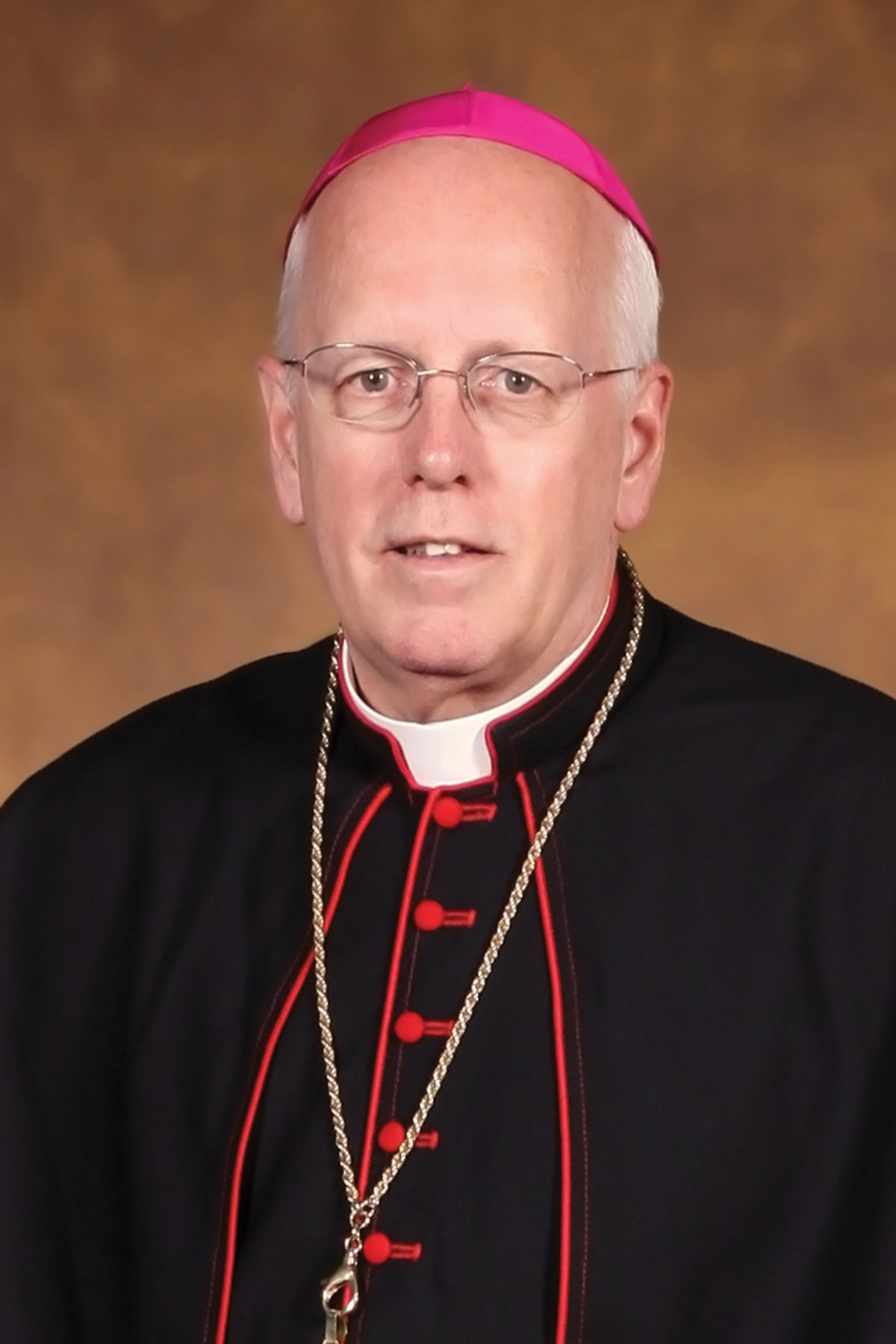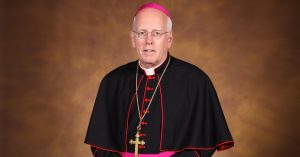
We pray in the Our Father: “forgive us our trespasses as we forgive those who trespass against us.” It is a high standard indeed and a humbling one: our forgiveness of others will be the standard by which we are forgiven. We know the teaching; we just have a hard time putting it into practice.
C.S. Lewis captured it so simply: “Everyone says forgiveness is a lovely idea until they have someone to forgive.”
As recorded in Sacred Scripture Peter asked Jesus how often must we forgive: as many as seven times? Some scholars tell us that he was being generous because in his day some taught it is necessary to forgive three times, then retribution could roll.
Jesus answered not seven times but seventy times seven. Do the math: is 490 times enough? Not really; Jesus really was telling us to forgive as often as is necessary. Our human nature is to calculate what we have to do. How many times “must” I forgive, Peter asked. If forgiveness is something we do because we have to, it will not last because it does not come from the heart.
Some will remember the old story about Pat and Mike, two Irishmen who held onto a grudge for many years despite the best efforts of their priest to reconcile them. Then Pat became deathly sick. The priest convinced Mike to visit Pat in the hospital. In that environment their hostility broke down. They said they were sorry, forgave one another and shook hands. Then as Mike was leaving, Pat called out to him, ‘now remember Mike, this only counts if I die.” A joke we hope.
God’s mercy toward us is not calculated. It is without limit because our need is without limit and it comes from pure love. That is the standard we are called to as hard as it is.
Forgiveness is not a reaction we have but a choice we can make. We are called to forgive to encourage others surely but it is necessary to forgive for our own well-being and salvation. George Herbert wrote: “People who cannot forgive others break the bridge over which they must pass if they are to reach heaven, for everyone has a need to be forgiven.”
To forgive does not mean to condone or minimize wrong actions. Nor does it mean that just consequences can be avoided. Nor does it mean that differences are eliminated. Nor does it result in the sudden removal of the hurt for we tend to remember. But when it comes from the heart it can lift our tendency toward self-absorption and opens us to be able to see beyond the moment and receive the grace God gives us to move on.
President Dwight Eisenhower, who led our country in war and peace, wrote about his learning this truth when growing up in Kansas. His older brothers were allowed to go trick or treating on Halloween but he was not because he was so young. He threw a temper tantrum, going into so wild a rage that he pounded his fists against the rough bark of an old apple tree to the point that his knuckles began to bleed. His father took a hickory switch to him and sent him to his room.
The retired five star general and leader of the free world recalled: “Perhaps an hour later my mother came into the room. I was still sobbing into the pillow, my feelings among others things hurt, completely abused and at odds with the entire world. Mother sat in the rocking chair by the bed and said nothing for a long time. Then she began to talk about temper and controlling it. Eventually as she often did, she drew on the Bible, paraphrasing it I suppose. This time she said, ‘he that conquereth his own soul is greater than he who taketh a city.” Hatred was a futile sort of thing, she said, because hating anyone or anything meant that there was little to be gained. The person who had incurred my displeasure probably didn’t care, possibly didn’t even know, and the only person injured was myself. This was soothing, although she added that among all her boys I was the one who had the most to learn. In the meantime, she had set about putting salve on my injured hands and bandaging the worst places. Not failing to make the point that I had expressed resentment and only damaged myself.” (At Ease: Stories I Tell My Friends)
When we allow hatred or anger or resentment to control us we damage ourselves spiritually, which sometimes is reflected physically, because we are focusing in our ourselves and do not experience the freeing love of our merciful God.
St. Mother Teresa wrote: “reconciliation begins not first with others but within ourselves. It starts by having a clean heart within. A clean heart is able to see God in others. The tongue,” she continued’ “the part of the body that is in such close contact with the Body of Christ, can become an instrument of peace and joy or of sorrow and pain. Forgive and ask to be forgiven; excuse rather than accuse.”
When we see Christ in others and seek to be Christ we will be able to keep the hurts of the world in perspective and forgive as we seek forgiveness from our hearts.
This whimsical little poem entitled “How to Forget” offers insight into how we can forgive seventy times seven, as often as it is needed.
“If you were busy being kind, before you knew it you would find you’d soon forget to think ‘twas true that someone was unkind to you.
“If you were busy being glad and cheering people who are sad, although your heart might ache a bit, you’d soon forget to notice it.
“If you were busy doing good, and doing just the best you could, you’d not have time to blame some man who’s doing just the best he can.
“If you were busy being right, you’d find yourself too busy quite to criticize your neighbor long because he’s busy being wrong.” (Rebecca Forsman)
As usual, I am preaching to myself. I need to get busy. Come join me.

